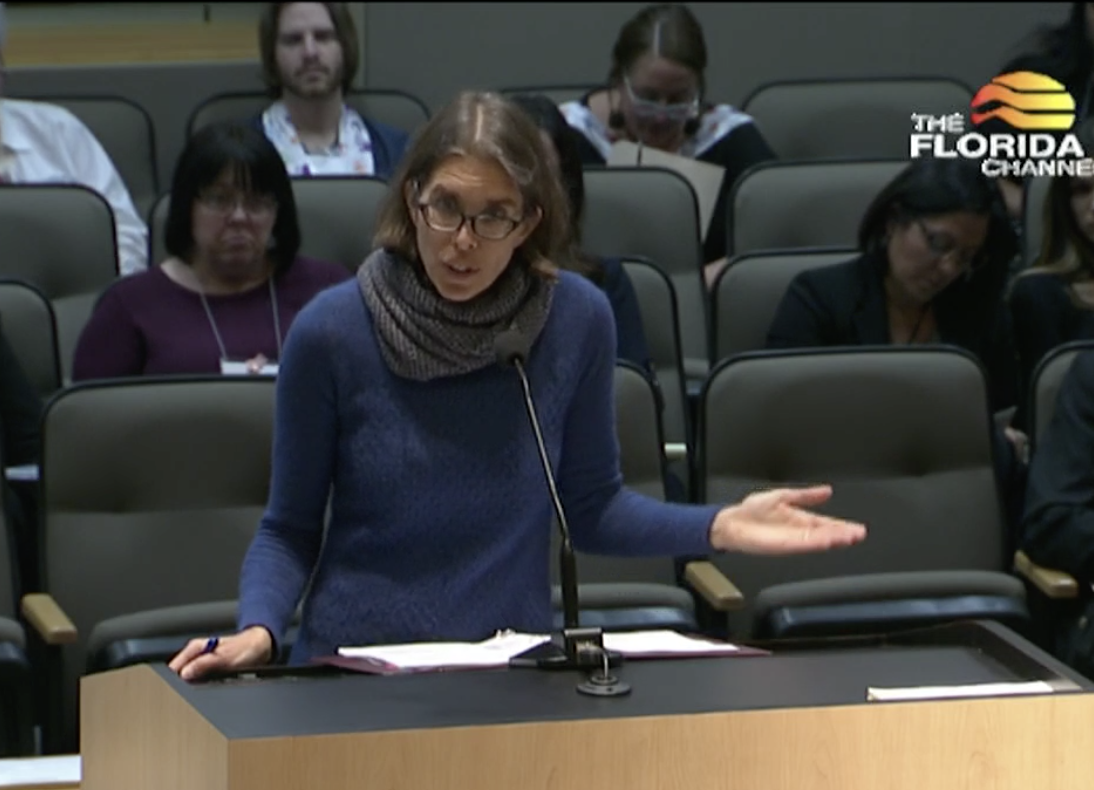Apples to Oranges: Comparing Full Day VPK to Half Day VPK

On 01/27/2020, Marie-Claire Leman, a Leon County parent representing Common Ground, testified in regard to SB1688 before the Senate Education Committee. As always, she asked some very good questions.
SB1688 is the massive Voluntary PreK bill, titled “Early Learning and Early Grade Success,” which we have previously written about (here and here). The bill, among other things, would expand high stakes testing and A-F School Grades to providers in the (mostly) private preschool marketplace.
For the record, we recognize the importance of high quality early childhood education and support efforts to improve both funding and quality of VPK for all of Florida’s preschoolers. We believe, however, that academic and/or other high stakes assessments are an inappropriate way to measure preschool quality and, if enacted, should be expected to have the same negative impacts that were seen when such “accountability” measures were applied to elementary school (loss of recess, arts, music; increased behavioral and mental health concerns). We recognize the essential need for play-based learning for young children and fear this will be pushed out by a perceived need to perform on academic assessments, especially for our neediest preschoolers. We are also concerned that such a high stakes accountability system will encourage preschool owners to offer fewer spaces to our neediest children or stop participating in the program at all.
During her Senate Education testimony, Ms. Leman began by confirming that she, also, agrees with the importance of early childhood education but has some concerns regarding the details of the accountability system described in SB1688. Specifically, she was concerned about a system which compares apples to oranges (You can watch Ms. Leman’s complete comments at 56:30):
“And what I mean by that is providers, who are able to offer full day learning and care because parents can pay the difference beyond the 3 hours, being compared to providers who will only be serving those children for 3 hours a day. And so, of course, when we’re comparing them down the road, whether it’s throughout that year or even until 3rd grade, we are going to be comparing apples and oranges when we’re grading these providers. And then, on top of that, we’re going to grade the A and B, they’re going to get more funding but it’s actually the ones who are serving our most neediest students that need the input of funding in order to provide for those students.”
This is an important point.
Families who can afford high end all day preschools often use VPK vouchers to reduce full day child care costs. Such preschools rely on fees for extended/full day care to provide high quality preschool environments to their families.
On the other hand, in lower economic areas, where many families cannot afford wraparound services, children may only have access to the 3 hours/day funded by the VPK voucher, if at all. Many working families find the 3 hour/day VPK nearly impossible to access in the middle of the work day and must, therefore, choose affordable childcare (perhaps with a family member) rather than VPK at all.
If the new A-F VPK school grades, or other accountability measures, do not correct for children who could afford full day preschool vs those who could not, then the system will be comparing apples to oranges.
As written, SB1688 could result in financially rewarding the “A” and “B” schools (where, perhaps, the wealthier families pay to provide their children with full day services) while labeling the schools providing the mandated 3 hours of services (where parents cannot afford wraparound services) as lower quality.
Such details need to be address before negative consequences affect these children and disrupt the private VPK marketplace.
